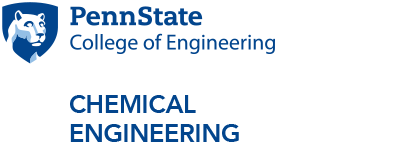Creating a New Circular Carbon Economy via Carbon Capture, Utilization and Storage
In order to meet the ever-increasing global energy demands while addressing climate change, the development of carbon capture, utilization and storage (CCUS) technologies is one of the critical needs. In particular, there have been significant efforts to develop innovative CO2 capture materials and CO2 conversion technologies to create a new circular carbon economy based on renewable energy. The next-generation CO2 capture materials, which are often water-free or water-lean, have unique structural and chemical properties that allow their applications in a wide range of reactive separation systems. Nanoparticle Organic Hybrid Materials (NOHMs) are organic-inorganic hybrids that consist of a hard nanoparticle core functionalized with a molecular organic corona that possesses a high degree of chemical and physical tunability. It has recently been discovered that NOHMs have interesting electrolyte properties that allow the CO2 capture to be pulled by the in-situ CO2 conversion reactions. The development of these unique nanoscale hybrid materials will not only advance CO2 capture materials design but also introduce unique research opportunities in various sustainable energy and environmental fields. This seminar will discuss the challenges and opportunities of different CO2 capture and conversion pathways including Negative Emission Technologies (e.g., Direct Air Capture) that can allow the development of circular carbon and hydrogen economy using renewable energy.
Additional Information:
About the Speaker
Ah-Hyung “Alissa” Park is the Ronald and Valerie Sugar Dean of UCLA Samueli School of Engineering and a Professor of Chemical and Biomolecular Engineering at the University of California, Los Angeles. Prior to joining UCLA in 2023, she was the Lenfest Earth Institute Professor of Climate Change at Columbia University, where she also served as the Director of the Lenfest Center for Sustainable Energy. Her research focuses on sustainable energy and materials conversion pathways with an emphasis on integrated Carbon Capture, Utilization and Storage (CCUS) technologies. Park received a number of professional awards and honors, including the Shell Thomas Baron Award in Fluid-Particle Systems and PSRI Lectureship Award from AIChE PTF, U.S. C3E Research Award, and NSF CAREER Award. She also led a number of global and national discussions on CCUS, including the Mission Innovation Workshop in 2017. Park is a Fellow of AIChE, ACS, RSC and AAAS.
Event Contact: Angela Dixon



